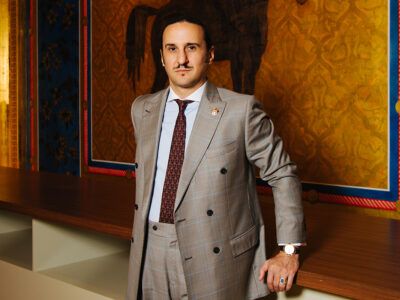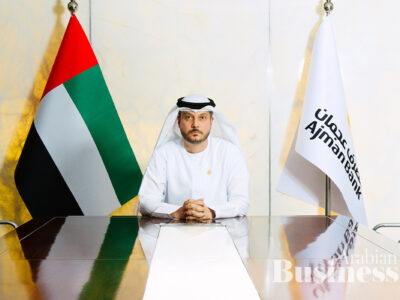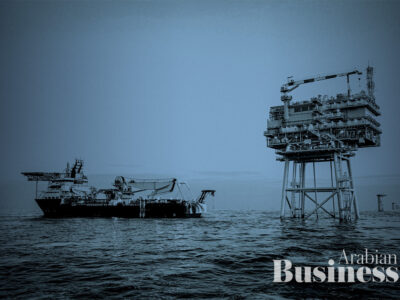Mohamed Alabbar leans forward in his chair, a glint in his eye as he describes his latest acquisition: “The fourth most beautiful island in the world,” he says with barely contained excitement, pulling up videos of pristine beaches and friendly wildlife at an undisclosed location. It’s a characteristic moment for the founder of Emaar Properties and Noon – equal parts visionary developer, shrewd businessman, and unabashed dreamer.
At 68, when some might be contemplating retirement, Alabbar continues to operate at an intensity that many would only dream of rivalling. He’s simultaneously orchestrating massive real estate developments across multiple continents, running Noon’s challenge to Amazon in the Middle East, and now eyeing opportunities in places as far-flung as Madagascar and Tanzania. But what drives him isn’t just the deal-making – it’s something he calls “paranoid love.”
The art of obsession
“Everything we do, we do with excessive love, with paranoia,” he explains, struggling to find the right words to capture this fusion of passion and obsession that defines his approach to business. This philosophy manifests in attention to detail that borders on fixation: from the Islamic architectural elements of a villa in Abu Dhabi to the placement of public seating in a European retail development.
This obsessive attention to detail extends across his entire business empire. “We run with military precision,” he says of Noon, the e-commerce platform that’s rapidly becoming a dominant force in the region. The results speak for themselves – the company is now “very close to being the largest delivery and e-commerce company in Dubai and the region.”
When it comes to business competition, Alabbar’s message is unequivocal: “You had better be prepared if you come to our town.” His voice carries both warning and pride when discussing Noon’s meteoric rise in the food delivery sector. “What we have done in Noon [in food delivery] in two years is amazing.” The message to competitors is clear: “We’re committed to winning and we won’t stop. There’s no limit to the investment we’ll go to.”
Behind Alabbar’s success lies a management philosophy that’s as uncompromising as it is effective. “Our discipline is more than the army,” he states matter-of-factly, describing an organisational culture that prizes excellence above all else. This military-grade precision extends across his entire business empire, from real estate developments to e-commerce operations.
But perhaps most striking is his approach to personnel management. When asked whether it’s more important to hire good people or remove ineffective ones, Alabbar doesn’t hesitate, describing a culture where underperformance isn’t tolerated.
“Getting rid of useless people is more important, because if you have them, you have destruction … We don’t wait too long,” he says.
This might seem harsh in an era of employee-centric management styles, but Alabbar sees it as essential to maintaining the standards of excellence that have defined his success. “We are very good at getting rid of useless people,” he states with characteristic directness. It’s this commitment to maintaining high standards that he credits with helping Noon challenge much larger global competitors.
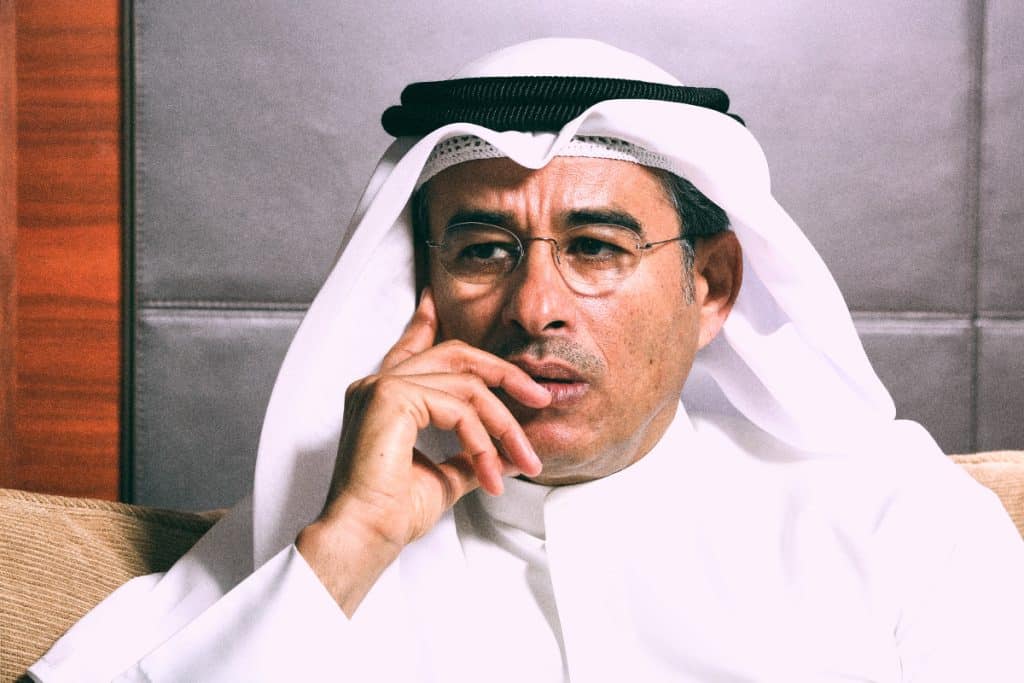
What truly sets Alabbar’s approach apart is his philosophy of internal competition. “We will always beat the competition, but more importantly we continue to beat ourselves,” he explains. “We beat ourselves all the time, that’s why we beat the competition, we beat ourselves every single year.”
Despite his achievements, Alabbar consistently deflects credit to Dubai itself and its leadership. “It’s the government of the UAE and its policies, along with the Dubai government policies that makes us all look like heroes. It’s not us, I’ll be honest,” he states plainly. This statement doesn’t come from a place of modesty but instead seems to emanate from a deeply held conviction coloured from his own entrepreneurial journey.
“They made me from nothing to everything,” he reflects, his voice carrying genuine gratitude.
The future builder
At an age when many executives focus on legacy, Alabbar remains fascinated by innovation and technology. “To live the life of e-commerce, the life of technology, to use AI in new and exciting ways, it’s an honour for me,” he says. “I’m really touched that I am exposed to this world.” He spends 50 per cent of his time on technology initiatives, embracing artificial intelligence and robotics through Noon.
Yet this embrace of technology hasn’t diminished his passion for traditional real estate development. “It’s not about one bedroom, two-bathroom, three-bedroom. That’s so boring,” he says dismissively. Instead, he envisions and creates entire ecosystems – where architecture, retail, public spaces, and human interaction combine to form vibrant communities.
His latest projects reflect this holistic vision. In Croatia, he recently acquired 12 hotels on the prestigious Suncani Hvar portfolio of hotels from CPI Property Group as part of the expansion of Eagle Hills. The hotels are located in Hvar, a Croatian island in the Adriatic see. Often dubbed the “Capri of the Adriatic,” the island is famed for luxury hotels, pristine beaches and cobbled, marbled streets. “This is once in a lifetime. There will never be an island like this, and there will never be hotels like this,” he says, describing the persistence required to close the deal despite regulatory hurdles.
The deal means Eagle Hills now owns 20 hotels and over 4,000 rooms on the coastline of Croatia, including 80 per cent of hotel rooms just in Hvar.
At the time Alabbar said: “I am lucky enough to have been to most places in the world, but I can safely say that this is the most beautiful coastline on the planet. And the best part is that it is truly undiscovered. The beauty, the value, the quality of towns – every day there is more to discover and admire, which is why Eagle Hills is so excited to be part of this story.”
The investments don’t stop there. Americana, the restaurant operator which Alabbar sits as the chairman of, announced in November 2024 that it would join forces with Farm Frites on a $100 million investment in a manufacturing plant in Riyadh, Saudi Arabia. Alabbar stated on the deal with Farm Frites that, “We are delighted to be renewing our long-standing relationship with a trusted partner, this time in Saudi Arabia, and are proud to be contributing to KSA’s Vision 2030 and championing efforts to increase local production in KSA.”
The next frontier
Alabbar’s horizons continue to expand, with his attention turning to untapped opportunities in emerging markets. His latest venture takes him to Madagascar, where sources previously stated that the Emaar founder is working on a mega project. In October, Arabian Business reported that Alabbar had met with business and political leaders, with a potential “major investment” on the cards, which could be worth well over $1 billion. It is not clear if any deal will be through Emaar, or his privately owned developer Eagle Hills.
On any deal in Madagascar, the billionaire developer was coy but did note: “Madagascar has so many islands, and every island is 40 kilometres from the airport,” he explains, already envisioning how new transportation technology could transform the traditional challenge of accessibility. “What makes it interesting is that now, with the air taxi that’s coming this year … it changes the formula completely.”
“These are beautiful countries that are forgotten,” he reflects. “I really believe that we should go and contribute and support some of these countries.”
Sleep is a luxury Alabbar rarely indulges in, his mind too excited by possibilities to rest. “I don’t think I’m working,” he insists. “I’m just having so much fun.” Yet this relentless drive is balanced by a deep sense of gratitude and responsibility.
“I think we owe the city so much … We’re really grateful,” he says.
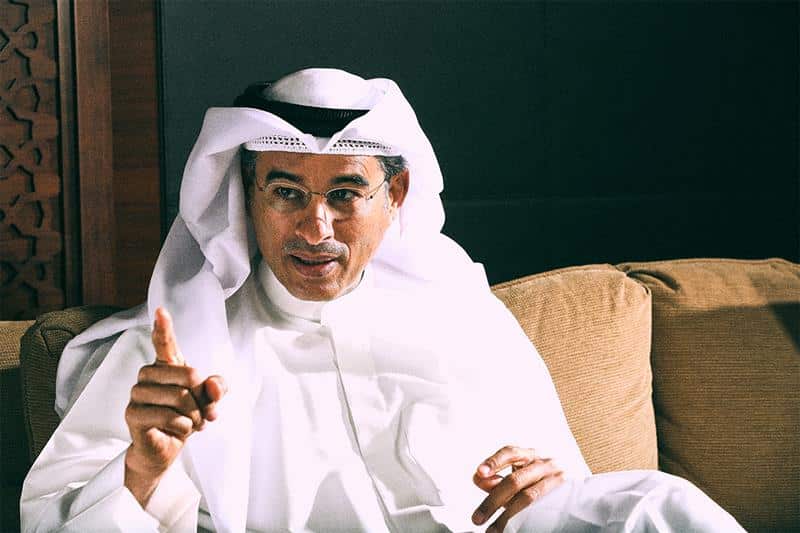
As our discussion winds down, Alabbar speaks with enthusiasm about the next generation, including his own children and grandchildren. He believes they will “bring peace to the world” through their global connectedness and technological fluency.
“Our children are coming from the world of today. They don’t need us,” he says with pride rather than resignation. “They’re connected to the world through their laptops … this is just firing their IQ higher. They are the people, not us.”
Yet even as he looks to the future, Alabbar remains firmly focused on the present and his numerous ongoing projects. “It’s not about the money,” he insists, “but we take our business really very seriously.” This balance of purpose and precision has made him one of the most influential figures in shaping modern Dubai, and he shows no signs of slowing down.
“We are very lucky to do what we do in our lives,” Alabbar reflects in a final moment of contemplation. Then, true to form, he’s already thinking about the next project, the next challenge, the next opportunity to build something extraordinary. For Mohamed Alabbar, the work of building – whether it’s buildings, businesses, or communities – never really ends. It’s simply too much fun to stop.
